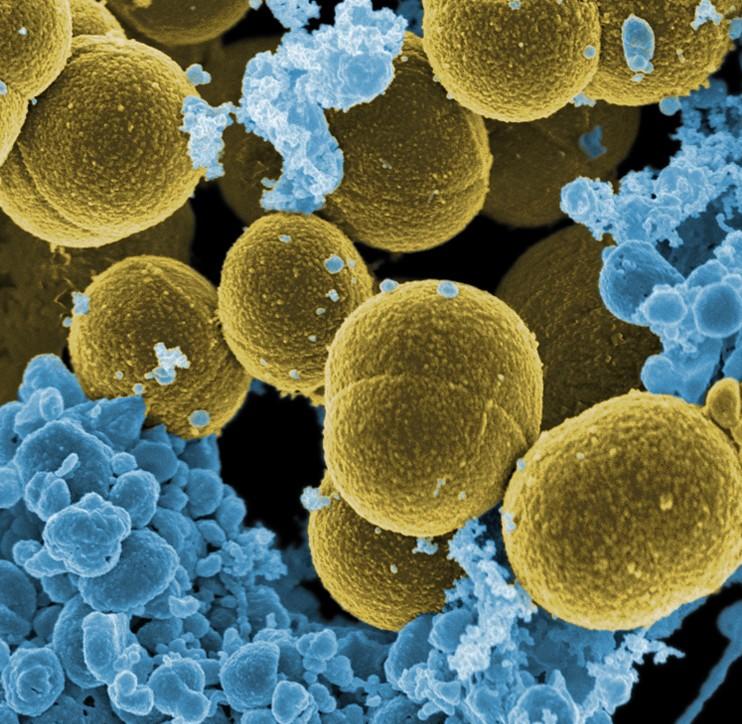Chromosomal Changes in White Blood Cells May Increase Risk of Infections
, by DCEG Staff
A new study finds large rearrangements in the DNA of white blood cells called mosaic chromosomal alterations may increase the risk of different types of infections, including severe COVID-19. The results were published in Nature Medicine on June 7, 2021.
White blood cells are key defense agents of the immune system which fight against infections. Previous studies have linked advancing age to increased risk of infection and to a rise in mosaic chromosomal alterations. While mosaic chromosomal alterations are associated with increased risk of blood cancers, the effect of these alterations on age-related immune function is poorly understood.
Postdoctoral fellow Shu-Hong Lin, Ph.D., M.S., and Earl Stadtman tenure-track investigator Mitchell Machiela, Sc.D., M.P.H., in the Integrative Tumor Epidemiology Branch, and collaborators analyzed nearly 770,000 individuals who did not have blood cancer across five biobanks in the United States, United Kingdom, Northern Europe, and Japan to investigate the relationship between mosaic chromosomal alterations and infections. The investigators found that 1 in 30 individuals had higher levels of mosaic chromosomal alterations, which was associated with a 2.7-fold risk of sepsis, 1.4-fold risk of respiratory infections, 1.5-fold risk of gastrointestinal infections, and 1.3-fold risk of genitourinary infections. Individuals with cancer had an even higher risk of developing an infection. The authors extended their analysis to patients who had COVID-19 in New York during the first wave of cases in the United States and found that those with more severe COVID-19 were more likely to have high mosaic chromosomal alterations—1 in 17 of mild cases compared to 1 in 6 of severe cases.
These findings have important implications for the prevention of infections. Surveillance for expanded mosaic chromosomal alterations, particularly among cancer patients, may help identify individuals at high risk for infection that could benefit from targeted interventions.
Reference
Zekavat SM, Lin S-H, et al. Hematopoietic mosaic chromosomal alterations increase the risk for diverse types of infection. Nat Med. June 2021.
